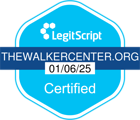🧠 Struggling with ADHD and addiction? You're not alone. Our latest blog sheds light on this complex relationship and offers practical strategies for managing both. Discover how structure, mindfulness, exercise, and the right support can pave the way to a healthier, happier you. 🌟 Whether it's finding your tribe or seeking professional help, we guide you through every step.
Sobriety Tips to Get You Through the Holiday Season
🎄 Navigating the holiday season in recovery? We've got you covered. 🌟 Check out our latest blog for essential tips to maintain your sobriety during this festive time. From leaning on your support network to practicing mindfulness, we share strategies to help you enjoy the holidays while staying true to your recovery journey. 💪
The Link Between Sleep and Recovery: Navigating Addiction's Impact
In the challenging journey of addiction recovery, sleep is a crucial but often overlooked ally. There is a deep link between sleep and recovery, and addiction can disrupt this important aspect of well-being. Learn everything you need to know about the importance of prioritizing good sleep practices as a vital part of restoration and renewal, and remember that we're here to support you or your loved one through every step of the journey.
5 Things Your Loved One With Depression Wants You to Know
Depression – a word often thrown around casually in conversations, but for those battling with it, the reality can feel exhausting. When a loved one is living with depression, it can feel hard to understand what they’re going through. That’s why we’ve put together a list of things that our loved ones wished we knew when they were at their lowest.
What is EMDR Therapy? A Comprehensive Guide
Navigating the world of therapy can sometimes feel like wandering through a maze with a multitude of turns and decisions. Among the various therapeutic approaches, EMDR or Eye Movement Desensitization and Reprocessing stands out, particularly for individuals grappling with traumatic experiences. But what exactly is EMDR, and how does it function? Let’s delve into the details.
5 Ways to Help A Loved One During a Panic Attack
Did you know? Panic attacks and anxiety disorders are among the most common mental health challenges with studies showing that an estimated 13% of people will experience a panic attack at some point in their life. Despite their prevalence, it can be difficult to know how to respond to a friend or loved one who is experiencing a sudden and unpredictable onset of panic.
How to Discuss Addiction Treatment With Your Employer
Seeking treatment for a substance use disorder is a life-changing decision and for many people in recovery, the choice to get professional help holds the key to getting their life back on track. Nevertheless, addiction treatment is a considerable commitment, especially for those in need of assistance from an inpatient program.
What are Relapse Dreams? 3 Things You Should Know
It’s no secret that getting quality sleep has a major impact on our overall health and well-being, but for people in recovery, falling asleep may not always be as relaxing as it sounds. Relapse dreams can be a common occurrence for both those progressing through addiction treatment and those maintaining their sobriety, but what are relapse dreams and what do they mean for your recovery?
College Students and Drinking: Is Your Child Hiding Their Alcohol Abuse?
As young adults entering a strange new world, college students face a variety of unique challenges that can feel both exciting and nerve-racking. In search of ways to cope with their new surroundings, many students resort to drinking as a way to fit in with their peers, manage stress, and lower inhibitions.
Living Substance Free: How to Cope With Boredom in Recovery
Boredom is a normal human experience, but it can be a formidable threat for people in addiction recovery. Feelings of boredom can increase the risk of substitute addictions, hazardous decisions, and relapse, especially for those in the early stages of adopting a sober lifestyle.
4 Common Misconceptions About Inpatient Substance Abuse Treatment
It’s no myth that getting sober is a transformative and tremendous accomplishment. An inpatient residential treatment program can offer you a way to ease into your recovery by removing external distractions and encouraging you to engage in healing therapies like mental health counseling, with 24/7 access to your treatment support team.
How to Manage Job Stress in Recovery: 6 Helpful Strategies
Most workplaces come with a special blend of stressors and responsibilities, but if your stress is having an impact on your ability to maintain your sobriety and mental health, it’s important to find realistic coping mechanisms to combat the pressure rather than rely on drugs or alcohol. Discover how to manage job stress without resorting to substances. Here are 6 helpful strategies to improve your workplace well-being.
Forming Healthy Habits and Routines
Real Addiction Stories: Matt
What Happens When You Black Out
What Happens When You Black Out
Blacking out is often a poorly understood phenomenon. While blackouts can commonly occur during heavy drinking, the effects are typically more dangerous than perceived.
What may be shrugged off as one wild night can turn into a harmful pattern of risky behavior and gaps in memory, leaving someone with little to no recall of the damage they have caused. Consuming a high alcohol content within a short period increases the chances of blackouts, preventing the mind from creating long-term memories.
Continue reading to learn how blackouts impact the brain and pose potential health risks.
Types and symptoms
Most blackouts result from binge-drinking in a short window of time. Perhaps the scariest aspect of blacking out is that someone can still be functioning somewhat normally during these episodes. Someone who has blacked out may simply act intoxicated, unaware of how impaired their mind is.
Symptoms of blackouts are exhibited through confusion about surrounding events, losing train of thought, or misunderstanding normal speech. Blackouts can occur in two different forms: fragmentary blackouts and en bloc blackouts.
The primary difference between these two forms is the ability to recall. Fragmentary blackouts result in a partial blocking of one’s memory. People who experience fragmentary blackouts may have trouble remembering what happened during that episode of intoxication, but pieces of memory come back to mind as others remind them of the events.
Their memory is jogged by triggers from someone or something that brings those thoughts back to the surface. En bloc blackouts are usually what people refer to as “blacking out.” In these situations, someone experiences a complete loss of memory during intoxication.
When a person is experiencing this type of an episode, they can create short-term memories to stay in the conversation and participate in activities, but all future memory of those interactions will be lost.
The brain forgoes its ability to create long-term memories, essentially erasing that first-hand history from one’s perspective.
Because of this inability to store long-term memories, people may react unattached or shocked when later hearing about their actions from when they were blacked out, feeling incredulous toward behaviors as if it wasn’t “actually them.”
Risks of blackouts
Most people would acknowledge that heavy drinking deteriorates one’s judgment and coordination, but fewer people understand the risks associated with repeated blackouts.
Continuing to experience blackouts is often an indicator of an alcohol use disorder, increasing one’s risk for chronic alcoholism. Chronic alcohol abuse increases one’s odds of liver damage, nerve damage, and likelihood of developing cancer.
Binge drinking also contributes to amnesia, putting the person at greater risk for memory loss. While the long-term effects are devastating, short-term effects can be just as hazardous.
Blackouts naturally increase one’s inclination to participate in dangerous activity, such as driving under the influence, illicit drug use, vandalism, unprotected sex, and other reckless behaviors.
Using blackouts to escape
Despite all these detrimental effects and health risks, an alcoholic may intentionally seek a blackout as an escape from other thoughts or circumstances.
In an addict’s mind, blackouts can be a temporary way out of their misery, numbing the pain or memories they wish to avoid. But this line of thinking is misled—blackouts don’t actually get rid of the misery.
Instead, blackouts just have dangerous impacts. Continuing to binge drink and blackout is a destructive spiral with huge consequences. Do you know someone struggling with alcohol abuse? Read tips on how to bring up the conversation on getting help.
Get The Latest Updates In Drug & Alcohol Recovery News To Your Inbox
If you opt into our newsletter, we promise to respect your privacy. We don’t share your information with any other parties. Sign up to get info about the science behind addiction, the latest trends in addiction treatment, inspirational recovery stories, and much more.




















